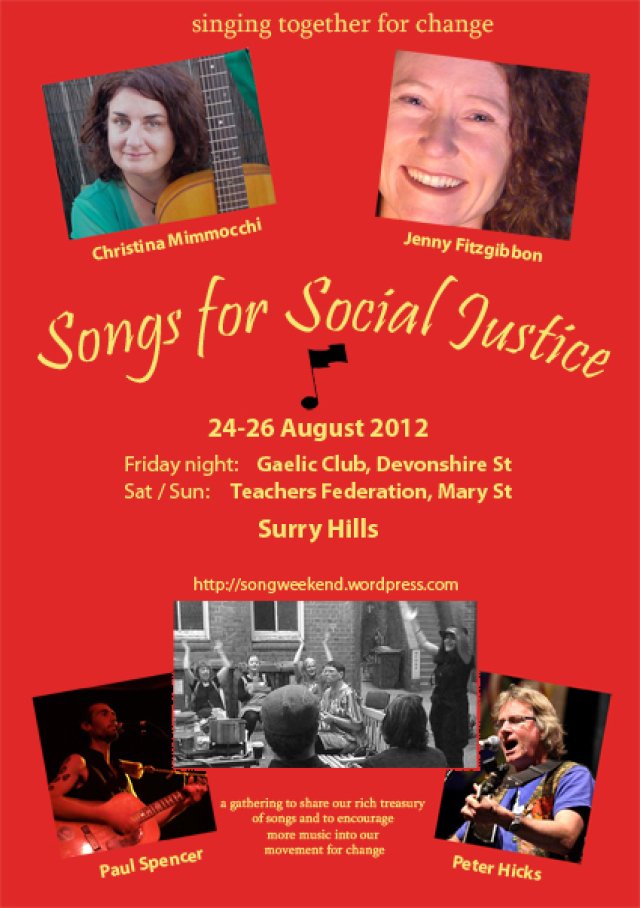
People are raising their voices in Sydney over August 24-26 to raise awareness among activists of songs, old and new, that further movements for social change.
There was a time when protest songs attracted positive media attention; now the media tends to complain about the lack of contemporary “protest” songs while they simultaneously ignore or rubbish them.
But they are alive and well - from the three young women in the band Pussy Riot, facing jail for their “punk prayer service” in Moscow's main cathedral, to Sydney band The Lurkers singing to “Rock the Gate” to prevent the mining of coal seam gas.
(Visit www.freemuse.org for more examples of attacks on musicians using their freedom of expression.)
A group of students and a smattering of old folkies have combined to organise a weekend of concerts, workshops and song-sharing circles under the banner “Songs for Social Justice”. The program and other details can be found here.
Songs help us to tell our stories, remember our history, and connect with each other on the deep level that drives us to work for social change.
Many of us can remember that it was a song that awakened us to the enormity of nuclear warfare, to the plight of refugees or the despoliation of the environment.
That song was more powerful than all the newspaper articles, documentaries and lectures. It was that song that drove us to be proactive in seeking to redress such injustices.
And when activism takes its toll, singing is a powerful way to bring people together.
The song weekend begins with a concert on the night of August 25 upstairs at the Gaelic Club, 64 Devonshire Street, Surry Hills. Events during the day on August 25 and 26 take place in Teachers Federation House, 23-33 Mary Street, Surry Hills.
The program is a multi-stream series of skills-sharing workshops and thematic song-sharing circles on topics such as land rights, refugees, coal seam gas, songwriting for causes, and songs for keeping hope alive.
There’ll be sessions devoted to the songs of Alistair Hulett, Pete Seeger, Woody Guthrie and Victor Jara; there’s also a session on “songs to die for” about singers who have been persecuted or killed for their music; and there will also be space for unstructured sessions.
The weekend is very much about participation ― people should not expect a music festival where there's a divide between entertainers and audience. The opening concert on the Friday night will be the only one with amplification.
The weekend will end with a two-hour concert sharing songs from each of the sessions.
Comments
Anonymous replied on Permalink